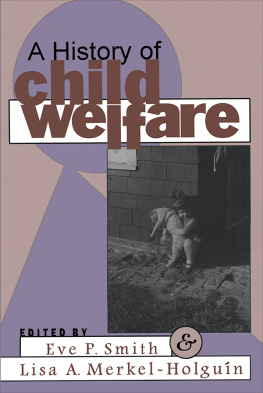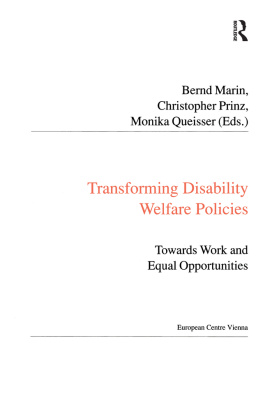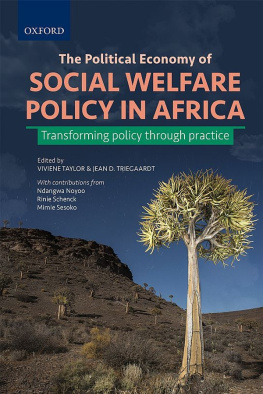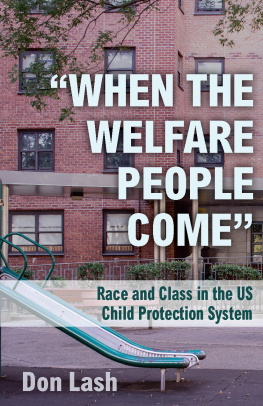transforming child welfare
Interdisciplinary Practices,
Field Education, and Research
Voices from the Prairies
Previous publications in the Voices from the Prairies series:
Passion for Action in Child and Family Services (2009)
Awakening the Spirit: Moving Forward in Child Welfare (2012)
Reinvesting in Families: Strengthening Child Welfare Practice for a Brighter Future (2014)
transforming child welfare
Interdisciplinary Practices,
Field Education, and Research
Voices from the Prairies
edited by
H. Monty Montgomery, Dorothy Badry,
Don Fuchs, and Daniel Kikulwe
2016 University of Regina Press.
Transforming Child Welfare: Interdisciplinary Practices, Field Education, and Research may be downloaded free of charge from www. uofrpress.ca or may be reprinted or copied, in whole or in part, for educational, service, or research purposes without permission. For all other purposes, written permission to reprint or use is required. Requests for written permission should be sent to the publisher.
Production of Transforming Child Welfare: Interdisciplinary Practices, Field Education, and Research has been made possible through funding from the Alberta Centre for Child, Family & Community Research ( accfcr ), the Social Sciences and Humanities Research Council of Canada (Connections Grant Program), and the Saskatchewan Health Research Foundation (Research Connections Program). The views expressed herein do not necessarily represent the views of accfcr or those of the editors. Every reasonable effort has been made to secure necessary permissions, but errors or omissions should be brought to the attention of H. Monty Montgomery at H.Monty.Montgomery@uregina.ca.
Suggested Citation: Montgomery, H., Badry, D., Fuchs, D., & Kikulwe, D. (Eds.). (2016). Transforming Child Welfare: Interdisciplinary Practices, Field Education, and Research. Regina, sk : University of Regina Press.
Printed and bound in Canada by Friesens. The text of this book is printed on 100% post-consumer recycled paper with earth-friendly vegetable-based inks.
Cover Design: Duncan Campbell, University of Regina Press
Text Design: John van der Woude, JVDW Designs
Copy editor: Kirsten Craven
Proofreader: Katie Doke Sawatzky
Index: Patricia Furdek
Cover Art: Silhouette of girl blowing dandelion by Ulkass / Dreamstime.com
Library and Archives Canada Cataloguing in Publication
Transforming child welfare : interdisciplinary practices, field education, and research : voices from the Prairies / edited by H. Monty Montgomery, Dorothy Badry, Don Fuchs, and Daniel Kikulwe.
Includes bibliographical references and indexes. Issued in print and electronic formats. isbn 978-0-88977-451-3 (paperback). isbn 978-0-88977-452-0 (pdf). isbn 978-0-88977-453-7 (html)
1. Child welfareCanada. 2. ChildrenGovernment policyCanada. 3. ChildrenCanadaSocial conditions. 4. Family policyCanada. 5. Social work with childrenCanada. 6. Social work educationCanada. i . Badry, Dorothy Eleanor, 1958-, author, editor ii . Kikulwe, Daniel, author, editor iii . Fuchs, Don, 1948-, author, editor iv . Montgomery, H. Monty, 1962-, author, editor
hv 745. a6t 73 2016 362.70971
c 2016-904752-0 c 2016-904753-9
10 9 8 7 6 5 4 3 2 1
University of Regina Press, University of Regina
Regina, Saskatchewan, Canada, S4S 0A2
tel : (306) 585-4758 fax : (306) 585-4699
web : www.uofrpress.ca
We acknowledge the support of the Canada Council for the Arts for our publishing program. We acknowledge the financial support of the Government of Canada. / Nous reconnaissons lappui financier du gouvernement du Canada. This publication was made possible through Creative Saskatchewans Creative Industries Production Grant Program.
This book is dedicated to those who care for and work with children. We must go forward with care, community, and compassion in striving for what is best for children and families, keeping in mind human rights and justice. The time for transformation in child welfare is here.
Contents
Foreword Brad McKenzie
From the Editors
Acknowledgements
introduction H. Monty Montgomery
Part I. Policy
chapter 1 : Honouring the Twenty-Fifth Anniversary of the United Nations Convention on the Rights of the Child: Transforming Child Welfare in Canada into a Stronger Child Rights-Based System Marvin M. Bernstein
chapter 2: Forms and Strategies for Integrated Working in Child Welfare Judy Gillespie
chapter 3: Saskatchewan First Nations: Researching Ourselves Back to Life H. Monty Montgomery, A. J. Felix, Patsy Felix, Margaret Kovach, and Shelley Thomas Prokop
Part II. Practice
chapter 4: Child Protection Inquiries: What Are They Teaching Us? A Canadian Perspective Peter Choate
chapter 5: Strengthening Childrens Capacity to Cope with Separation, Loss, and Uncertain Futures: Action Steps for Front-Line Child Welfare Practice Sharon McKay
chapter 6: Aligning Practice, Ethics, and Policy: Adopting a Harm Reduction Approach in Working with High-Risk Children and Youth Peter Smyth
Part III. Research
chapter 7: Prioritizing Children in Care with fasd : Why Prevalence Matters Don Fuchs and Linda Burnside
chapter 8: A Community-Based Research Approach to Developing an hiv Education and Training Module for Child and Family Service Workers in Ontario Saara Greene, Doe OBrien-Teengs, Gary Dumbrill, Allyson Ion, Kerrigan Beaver, Megan Porter, and Marisol Desbiens
chapter 9: Boundaries and Identity: Racialized Child Welfare Workers Perspectives of Their Histories and Experiences When Working with Diverse Families Daniel Kikulwe
chapter 10: Pathways: Community-Engaged Research with Youth Transitioning to Adult In(ter)dependence from Government Care Marie Lovrod, Darlene Domshy, and Stephanie Bustamante
chapter 11: Narrative Threads in the Accounts of Women with Learning Difficulties Who Have Been Criminalized Elly Park, David McConnell, Vera Caine, and Joanne Minaker
Part IV. Teaching
chapter 12: The Caregiver Curriculum on fasd : Transforming Practice through Knowledge and Education Dorothy Badry, Deborah Goodman, and Jamie Hickey
chapter 13: An Indispensable Tool in the Tool Kit: Distance Delivery in Social Work Education to Support Child Welfare Practice James Mulvale
Epilogue Dorothy Badry and Daniel Kikulwe
Abstracts
Contributors
Endnotes
Foreword
Brad McKenzie
Wicked problems are problems that are difficult to solve because they have a high degree of complexity, and the circumstances surrounding them are somewhat unique. Each solution gives rise to a new problem; thus, problems must be resolved over and over again without the ability to apply a commonly recognized model or blueprint (Rittel & Webber, 1973). Child abuse and neglect are wicked problems, and in the last national study conducted in Canada in 2008, more than 235,000 allegations of child maltreatment were identified (Public Health Agency of Canada, 2010). The rate of children in care in Canada is among the highest in the developed world (Thoburn, 2007), and the disproportionate rate of Indigenous children in care, particularly in Western Canada (Sinha, Trocm, Blackstock, MacLaurin, & Fallon, 2011), is a national tragedy. The child welfare system is under intense public and media scrutiny, yet efforts to protect children and support families continue to be confronted by constraints in funding, poorly coordinated service responses, and challenges in training and retaining professionals. An even more important issue is the inadequate systemic response to the structural causes of child maltreatment, including poverty, poor housing, and racial injustice, which in the case of Indigenous children and families are related to the legacy of residential schools and other forms of colonialism. The plethora of special studies and inquiries have, at best, resulted in modest changes in service delivery or funding, and too often these are accompanied by new procedures and requirements for compliance that seem to impede rather than support best practices that both protect children and support families. Meanwhile, our search for a single best practice model in child and family welfare, like the search for the Holy Grail, continues in vain.















